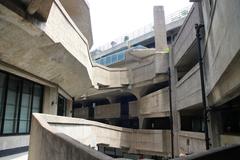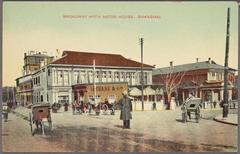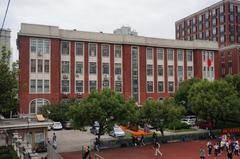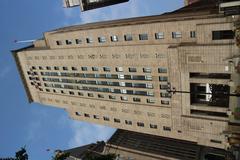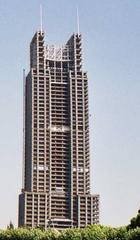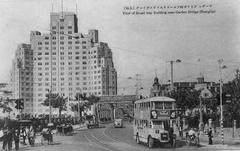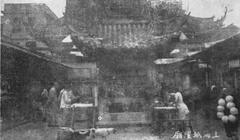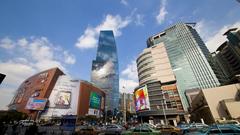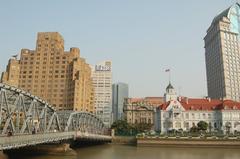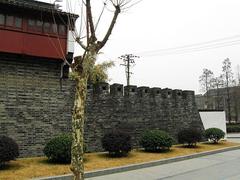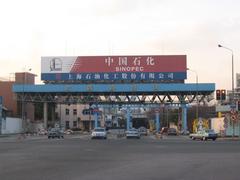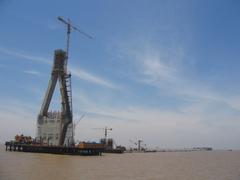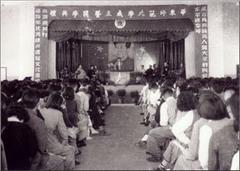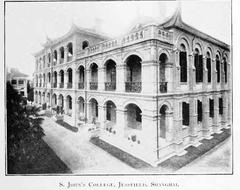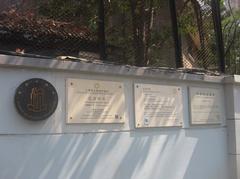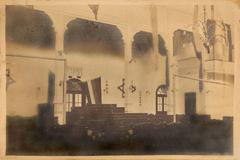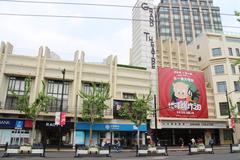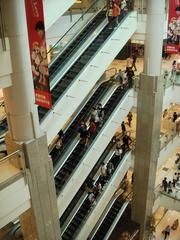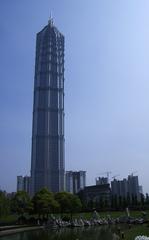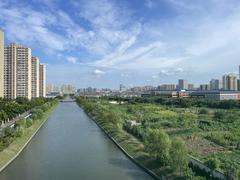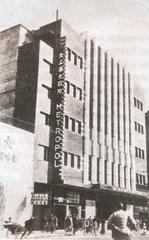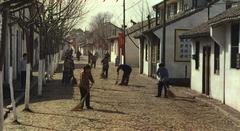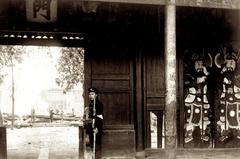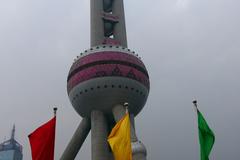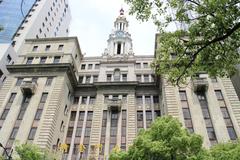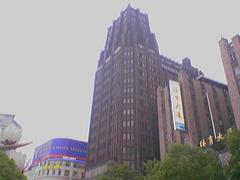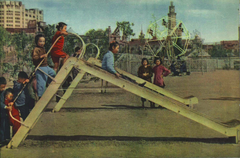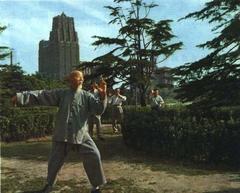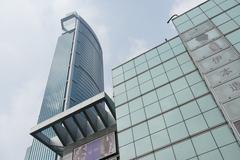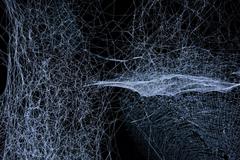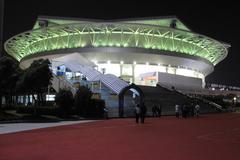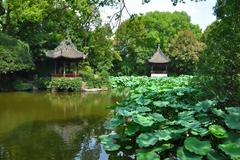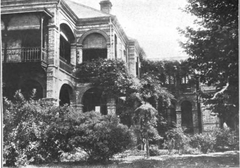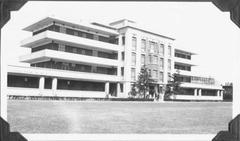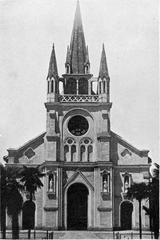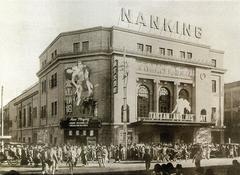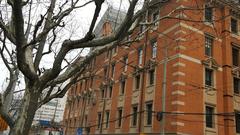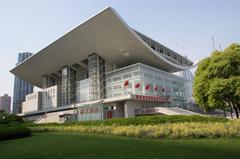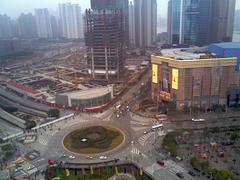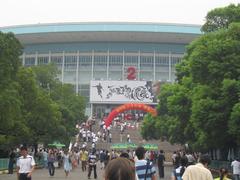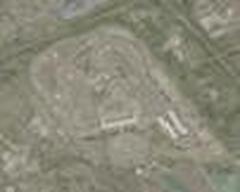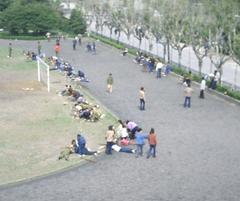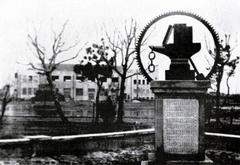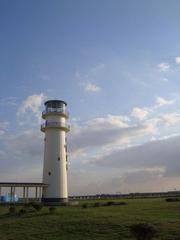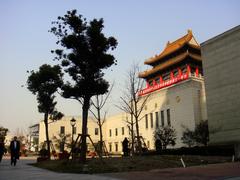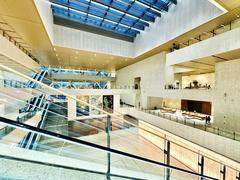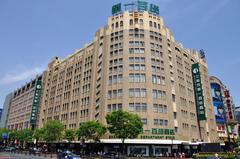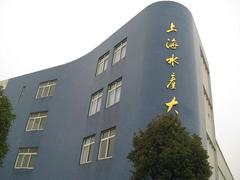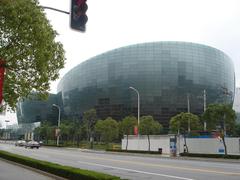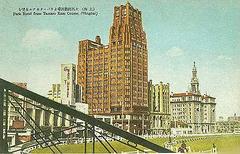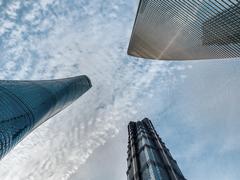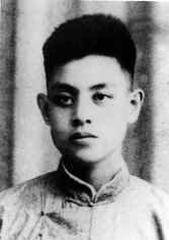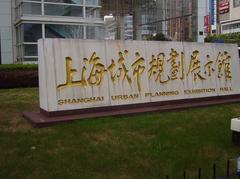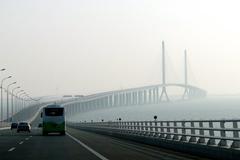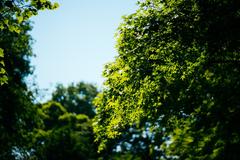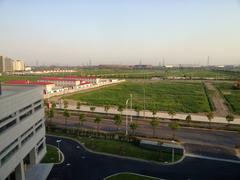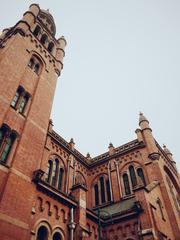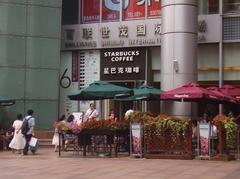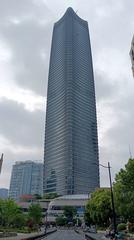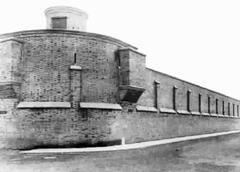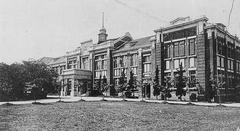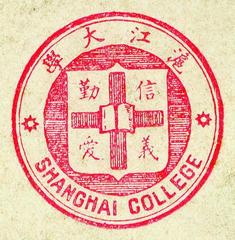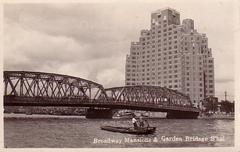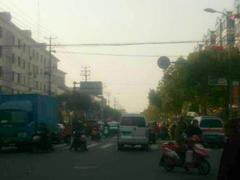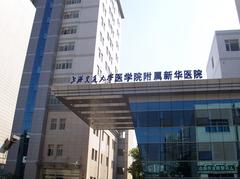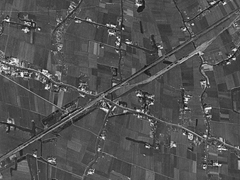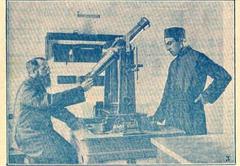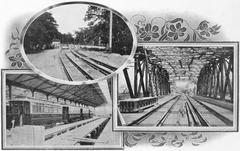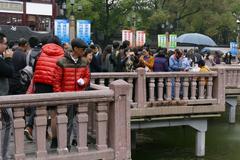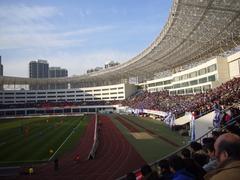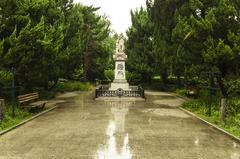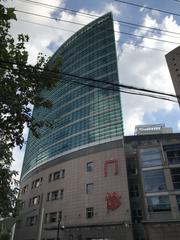Meilong Town Shanghai: Visiting Hours, Tickets, and Historical Sites Guide
Date: 15/06/2025
Introduction: Meilong Town’s Historical Significance and Visitor Overview
Contents
- History of Meilong Town
- Top Attractions and Visitor Information
- Transportation and Accessibility
- Cultural Events and Community Life
- Visitor Tips
- Frequently Asked Questions (FAQ)
- Key Attractions in Detail
- Local Culture and Community Life
- Urban Renewal and Infrastructure
- Summary and Call to Action
- Sources
History of Meilong Town
From Rural Roots to Urban Charm
Meilong Town began as Meijialong (梅家弄), a settlement established during the Ming Dynasty. Its development accelerated after 1908, when the Shanghai-Hangzhou Railway brought new economic opportunities. The town’s market streets grew in a distinctive “fishbone” pattern, and by the early 20th century Meilong became one of Shanghai’s first suburbs to enjoy modern amenities such as electricity (1935), tap water (1964), and pipeline gas (1967).
Role in Shanghai’s Urban Expansion
Post-1949 urban policies positioned Meilong as a strategic suburban center, supporting Shanghai’s industrial and residential growth. Today, Meilong is emblematic of the city’s ability to balance preservation with progress, offering a window into both its heritage and its future.
Top Attractions and Visitor Information
Jinjiang Amusement Park
A flagship family-friendly destination, Jinjiang Amusement Park features a towering Ferris wheel and a variety of rides. It is undergoing transformation to become the world’s third Harry Potter Studio Tour by 2027.
- Hours: 9:00 AM – 6:00 PM (may vary during holidays)
- Tickets: 120–180 RMB; discounts for children and seniors
- Tips: Visit on weekdays or early mornings for fewer crowds and best photos
Reeb Cultural and Innovation Park
Once a brewery, now a hub for creative industries, this park offers art exhibitions, workshops, and entrepreneurial events.
- Hours: 10:00 AM – 7:00 PM, Tuesday to Sunday
- Tickets: Free entry; some events require reservation
Meilong Flower and Bird Market
At 166 Yimei Road, this daily market is a lively spot for horticulture, pet birds, and local socializing.
Weide Art Center
Home to China’s largest stained glass artwork by Chen Weide, blending traditional art and modern creativity.
Transportation and Accessibility
- Metro: Lines 1 and 5 serve Meilong, with convenient connections to major city hubs.
- Bus: Multiple lines from downtown Shanghai and local neighborhoods.
- Car: Easy access via major highways; parking available at main attractions.
All major attractions are wheelchair accessible, with ramps and lifts available. Tourist centers offer additional support for visitors with mobility needs.
Cultural Events and Community Life
Meilong’s community centers host performances, workshops, and free traditional Chinese medicine consultations. Notable local dance troupes and regular public events provide authentic cultural experiences for visitors.
Visitor Tips
- Best Visiting Seasons: Spring (April–May) and Autumn (September–October)
- Cuisine: Don’t miss local street food like shengjianbao and xiaolongbao
- Photography: The Ferris wheel at sunset and Weide Art Center’s stained glass are top photo spots
- Guided Tours: Book through local agencies or the Audiala app for tailored experiences
Frequently Asked Questions (FAQ)
Q: What are the opening hours for Jinjiang Amusement Park?
A: 9:00 AM to 6:00 PM; check the official website for holiday hours.
Q: How much are tickets for main attractions?
A: Jinjiang Amusement Park: 120–180 RMB. Most parks and markets: free entry.
Q: Is public transport convenient?
A: Yes, metro Lines 1 and 5, plus numerous bus routes, serve Meilong.
Q: Are guided tours available?
A: Yes, via local operators and official tourism offices.
Q: Is Meilong Town suitable for families?
A: Absolutely—parks, amusement facilities, and cultural sites welcome all ages.
Key Attractions in Meilong Town
Meilong Park
A beloved local park open from 6:00 AM to 9:00 PM, free to enter. Features tranquil lakes, exercise equipment, and seasonal flower displays—ideal for relaxation and morning tai chi.
Longhua Temple and Pagoda (Nearby)
A short drive away, Longhua Temple is Shanghai’s oldest Buddhist site (7:00 AM–5:00 PM, ~10 CNY entrance). The historic pagoda and gardens attract visitors year-round.
Wet Markets and Street Life
Traditional wet markets bustle with life from early morning, offering fresh produce, seafood, and beloved snacks like youtiao and jianbing (Shanghai street food guide).
Meilong Cultural Center
Open Monday to Saturday, 9:00 AM–6:00 PM. Free exhibitions, calligraphy classes, and music performances foster cultural engagement.
Proximity to Xujiahui and Qibao Ancient Town
- Xujiahui: A nearby commercial hub with malls and historic sites
- Qibao Ancient Town: Qibao features water-town architecture and traditional teahouses (8:00 AM–6:00 PM, ~40 CNY)
Local Culture and Community Life
Everyday Life and Social Customs
Meilong residents cherish traditions, from morning group exercises and mahjong to festive celebrations. Community values emphasize harmony and respect (Shanghai etiquette).
Culinary Traditions
Signature dishes include xiaolongbao, shengjianbao, and sweet and sour mandarin fish. Street foods and local eateries are integral to daily life.
Festivals and Events
Lunar New Year, Mid-Autumn, and Double Ninth are highlights, celebrated through lanterns, mooncakes, and performances.
Blending Modernity and Tradition
Modern high-rises and communal courtyards coexist. Bicycles and e-scooters remain popular for daily travel (exploring Shanghai by bike).
Community Structure
Neighborhood committees organize events and support residents, fostering strong social ties. Education, family, and multi-generational households help preserve traditions.
Urban Renewal and Infrastructure
Renewal Initiatives
Transport Upgrades
Metro, bus, and cycling infrastructure have been expanded. The area is also piloting sustainable mobility with all-electric bus fleets and improved pedestrian pathways.
Heritage Preservation
Urban renewal balances modernization with protection of Meilong’s unique historical character. Planners and architects collaborate to maintain local culture while upgrading facilities.
Summary and Call to Action
Meilong Town is a vibrant example of Shanghai’s fusion of tradition, culture, and urban innovation. From its market street origins to its current role as a modern suburban hub, Meilong offers visitors a rich tapestry of experiences—historic sites, flourishing parks, creative centers, and authentic local life. Ongoing renewal projects and excellent transport links make it accessible and inviting for all.
Sources and Further Reading
- Longhua Temple - China Discovery
- Qibao Ancient Town - China Discovery
- Shanghai Street Food Guide - China Travel
- Shanghai Etiquette - Expat.com
- Exploring Shanghai by Bike - China Travel
